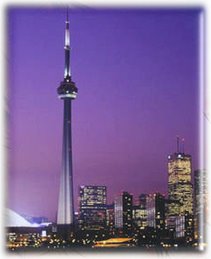Imagine spending 60 years in Canada raising a family and paying taxes, only to find out you're not a Canadian citizen. That's exactly what happened to Marion Galbraith of Dartmouth when she applied for a passport in March so she could travel to England and visit family. She couldn't believe it when she was turned down because, as the clerk at the passport office explained, she was not a Canadian citizen. "I started to laugh, and I said, 'You're kidding me, aren't you?'" Galbraith said. She's just one of hundreds of Canadians who have found out they're not actually citizens through sections of the 1947 Citizenship Act. It affects the wives and children of Canadian soldiers who were born abroad, and many others who fall under a variety of categories. Galbraith and her sister were born in England, the children of a war bride and a Canadian soldier. The family moved to Canada when Galbraith was three. "They were born before Canadian citizenship existed, and they weren't born in Canada," said Marina Wilson, a spokeswoman for Citizenship and Immigration Canada. "She was born outside of the country before the act was in place, so she didn't qualify," she added. Nearly three months after discovering the startling news, Galbraith is still fighting - and waiting - for her official citizenship papers. She's spent countless hours filling out various applications and has forked over hundreds of dollars. Though she could travel with a British passport, she's postponed her trip till August.
Her sister, Annette Piccott, didn't fully believe there was a problem. Then she found she wasn't a Canadian citizen when she applied for her Old Age Security pension and received a letter stating she wouldn't receive money without proof of citizenship. Galbraith wants others to know they could be in the same boat. "The only way I found out is Lisa and (husband) Doug buying me a surprise ticket to take me back (to England) after 60 years." The situation saddens and frustrates Galbraith's daughter, Lisa Cochrane. "My mother has never been outside of Canada travelling," Cochrane said. "She's a homebody." Cochrane said her mother was so excited when she learned about the trip planned for the beginning of June that she had her suitcase packed by March. The two gave testimony this week during a Parliamentary hearing of the Standing Committee on Citizenship and Immigration, which is considering recommendations for possible legislation in the fall that could help these "lost Canadians" and grant them citizenship. But Galbraith worries the proposed legislation would not take into account people born abroad before 1947, like herself and her sister. "What about those people from '46 and '45 and '44?" she said. At this point, the government considers those born before 1947 on a case-by-case basis, Cochrane said.
Her sister, Annette Piccott, didn't fully believe there was a problem. Then she found she wasn't a Canadian citizen when she applied for her Old Age Security pension and received a letter stating she wouldn't receive money without proof of citizenship. Galbraith wants others to know they could be in the same boat. "The only way I found out is Lisa and (husband) Doug buying me a surprise ticket to take me back (to England) after 60 years." The situation saddens and frustrates Galbraith's daughter, Lisa Cochrane. "My mother has never been outside of Canada travelling," Cochrane said. "She's a homebody." Cochrane said her mother was so excited when she learned about the trip planned for the beginning of June that she had her suitcase packed by March. The two gave testimony this week during a Parliamentary hearing of the Standing Committee on Citizenship and Immigration, which is considering recommendations for possible legislation in the fall that could help these "lost Canadians" and grant them citizenship. But Galbraith worries the proposed legislation would not take into account people born abroad before 1947, like herself and her sister. "What about those people from '46 and '45 and '44?" she said. At this point, the government considers those born before 1947 on a case-by-case basis, Cochrane said.


